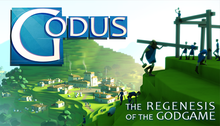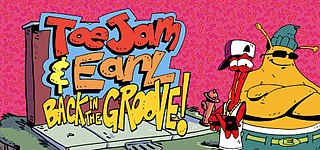
The Fantasy Trip (TFT) is a fantasy tabletop role-playing game designed by Steve Jackson and published in segments by Metagaming Concepts starting in 1977 and culminating in 1980. In 2019, Steve Jackson Games republished it as The Fantasy Trip Legacy Edition.

Treasure Co., Ltd. is a Japanese video game developer based in Tokyo known for its action, platform, and shoot 'em up games. The company was founded in 1992 by former Konami employees seeking to explore original game concepts and free themselves from Konami's reliance on sequels. Their first game, Gunstar Heroes (1993) on the Sega Genesis, was a critical success and established a creative and action-oriented design style that would continue to characterize their output. Treasure's philosophy in game development has always been to make games they enjoy, not necessarily those that have the greatest commercial viability.

Stardock Corporation is a software development company founded in 1991 and incorporated in 1993 as Stardock Systems. Stardock initially developed for the OS/2 platform, but was forced to switch to Microsoft Windows due to the collapse of the OS/2 software market between 1997 and 1998. The company is best known for computer programs that allow a user to modify or extend a graphical user interface as well as personal computer games, particularly strategy games such as the Galactic Civilizations series, Sins of a Solar Empire: Rebellion, Elemental: Fallen Enchantress, and Ashes of the Singularity.

Keith Baker is an American game designer and fantasy novel author. In addition to working with Wizards of the Coast on the creation of Eberron, he has also contributed material for Goodman Games, Paizo Publishing and Green Ronin Publishing. In 2014, Baker and Jennifer Ellis co-founded the indie tabletop game company Twogether Studios.

Kaiju Big Battel is a performance by the New York City based performance entertainment troupe created by Rand Borden. The performances are parodies of both professional wrestling and the tokusatsukaiju eiga films of Japan. These Battels are presented in the style of professional wrestling events, with the costumed performers playing the roles of giant, city-crushing monsters similar to Godzilla and Gamera. The odd spelling of battel originates in a mistake Borden made on a T-shirt design, which became an inside joke. The performances include many in-jokes aimed towards fans of professional wrestling, superhero comic books and Japanese popular culture. Many of the names of the characters are in mock Spanish or mock Japanese, and Engrish is used liberally for comedic effect.

Elan Lee is an American game designer, developer, and creator. He has designed games for the Xbox; helped create the world’s first Alternate Reality Games; and with Matthew Inman created the card game Exploding Kittens, whose Kickstarter campaign was the most-backed of its day. He and Inman founded the Exploding Kittens company in 2015.

Kickstarter is an American public benefit corporation based in Brooklyn, New York, that maintains a global crowdfunding platform focused on creativity. The company's stated mission is to "help bring creative projects to life". As of February 2023, Kickstarter has received US$7 billion in pledges from 21.7 million backers to fund 233,626 projects, such as films, music, stage shows, comics, journalism, video games, board games, technology, publishing, and food-related projects.
Sifteo Cubes are an interactive gaming platform developed by Sifteo, Inc. The cubes are 'motion-aware' and 1.5-inch in size with touch screens. They are designed for use by players ages six and up. On August 30, 2012, Sifteo announced the second generation of their product, Sifteo Cubes Interactive Game System, which was meant to have improved upon various perceived deficiencies of the original Sifteo Cubes. Sifteo was acquired by 3D Robotics in July 2014 for an undisclosed amount of money and Sifteo Cubes were discontinued.

The Ouya, stylized as OUYA, is an Android-based microconsole developed by Ouya Inc. Julie Uhrman founded the project in 2012, bringing in designer Yves Béhar to collaborate on its design and Muffi Ghadiali as VP of Product Management to put together the engineering team. Development was funded via Kickstarter, raising US$8.5 million, becoming one of the website's highest earning projects in its history.
Video game development has typically been funded by large publishing companies or are alternatively paid for mostly by the developers themselves as independent titles. Other funding may come from government incentives or from private funding.

Godus or Godus Wars is a god video game developed by 22cans and published by DeNA. The company launched a Kickstarter campaign to raise funds and met their funding goal on 20 December 2012. Godus was designed by Peter Molyneux, who described it as the spiritual successor to his earlier creation, Populous. While the mobile versions of the game continues to be updated, the PC edition of the game never left Steam Early Access, and is no longer available for purchase on the Steam store.

The Virtuix Omni is an omnidirectional treadmill simulator for virtual reality games and other applications. It uses a platform to simulate locomotion i.e. the motion of walking, requiring both special shoes or shoe covers and a surface that reduces friction. It works in conjunction with the HTC Vive, and allows a Vive user to physically walk within a limited number of supported games.

Powered by the Apocalypse (PbtA) is a tabletop role playing game design framework developed by Meguey Baker and Vincent Baker for the 2010 game Apocalypse World and later adapted for hundreds of other RPGs.

Reality Labs, originally Oculus VR, is a business and research unit of Meta Platforms that produces virtual reality (VR) and augmented reality (AR) hardware and software, including virtual reality headsets such as Quest, and online platforms such as Horizon Worlds. In June 2022, several artificial intelligence (AI) initiatives that were previously a part of Meta AI were transitioned to Reality Labs. This also includes Meta's fundamental AI Research laboratory FAIR which is now part of the Reality Labs - Research (RLR) division.
Spire Global, Inc. is a space-to-cloud data and analytics company that specializes in the tracking of global data sets powered by a large constellation of nanosatellites, such as the tracking of maritime, aviation and weather patterns.

ToeJam & Earl: Back in the Groove is the fourth entry in the ToeJam & Earl series of video games. The game was developed by HumaNature Studios, founded by series creator Greg Johnson, and published by the studio on March 1, 2019.

The Fidget Cube is a small hand-held device designed by Matthew and Mark McLachlan, brothers and co-founders of the US design studio Antsy Labs. It has fidget tools on all sides: a toggle switch, gears, a rolling ball (marble), a joystick, a spinning disk, a worry stone, and five buttons. It may help users with ADHD focus. It can also help kids with autism and anxiety calm down or focus.

The Arduboy is a handheld game console with open source software, based on the Arduino hardware platform.

Cozmo is a miniature robot created by Anki. Cozmo's base model, released in October 2016, is a small, white and gray robot with red highlights. It makes use of distinct expressions, dubbed the "emotion engine", in order to mimic human emotion.
















